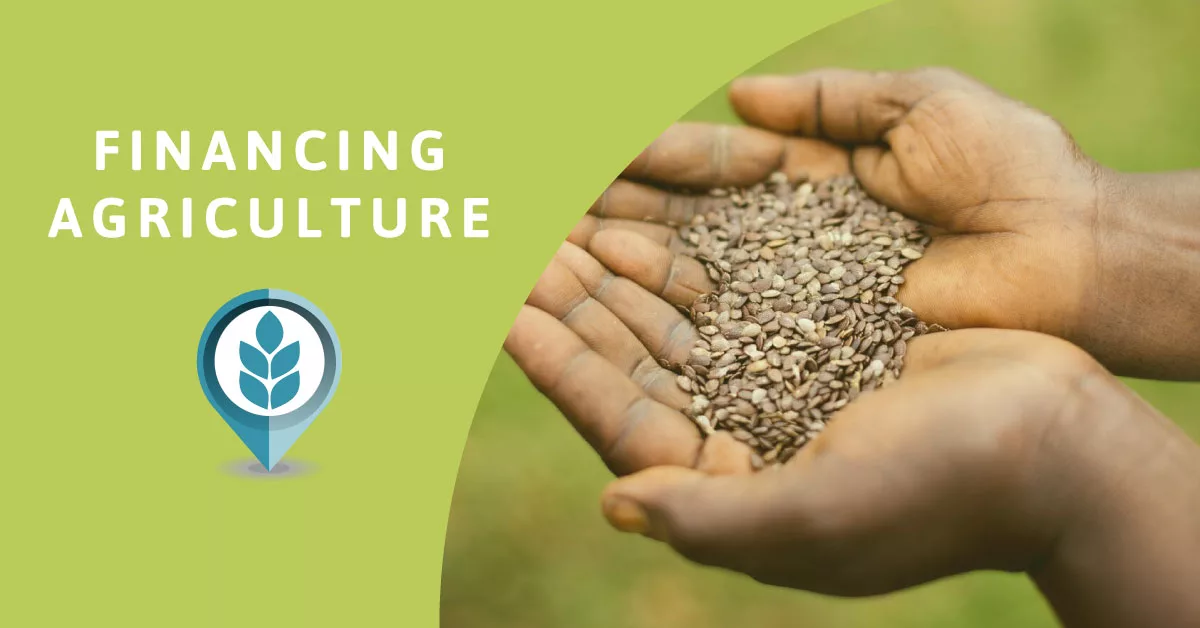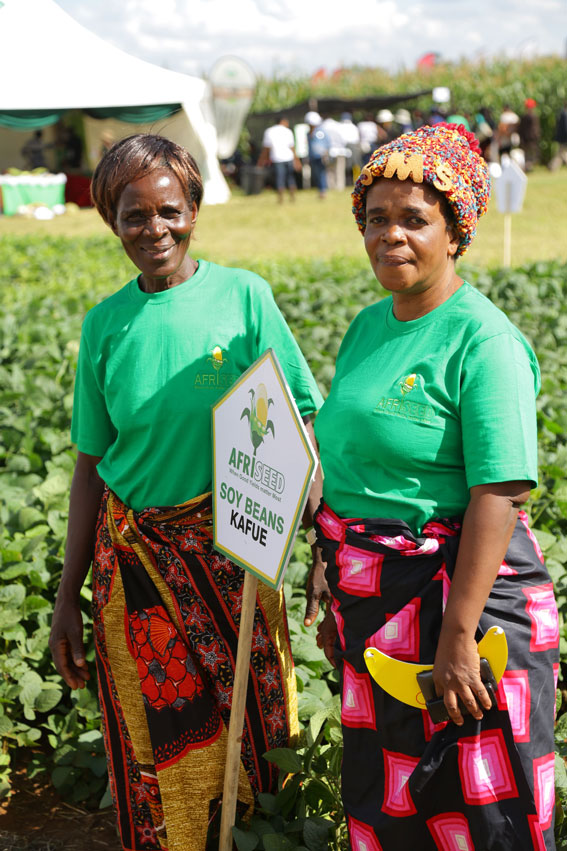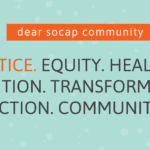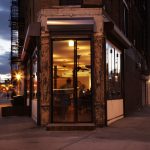A SOCAP Guest Post by Mark Sevier, Acceleration Manager, Partnering for Innovation
SOCAP19 includes a “sustainable agriculture” track to highlight small and growing businesses operating in emerging markets. The track illustrates the untapped opportunities in agriculture and features insights into how small and growing businesses, with the right partners, can meet a rising demand for food in ways that minimize negative environmental and social impacts.
In Malawi, as Fredric Kawalewale says, “agriculture is our way of life – we depend on it to survive.” However, during his tenure as a microfinance officer providing loans to smallholder farmers, Fredric found that his client’s crops were suffering. This was because of the low amount of nitrogen and other essential nutrients in the soil, which is necessary for plants to thrive and the farmers to make a living. Farmers needed ways to fix nitrogen into the soil, and so Fredric, despite not being an agriculture expert, decided to develop a product to do just that.
Fredric worked with a research organization to create a solution – now called Nitrofix – and started a company, Agro-Input Suppliers Limited (AISL) to get it to farmers. Fredric’s business idea quickly served the huge market gap he identified – and AISLs sales are growing fast. At the same time, tens of thousands of farmers using the small packets of Nitrofix benefit in a big way – with healthier plants, they get higher yields and more income. To keep growing, AISL needs to invest in the distribution network through the construction of strategic hub shops/warehouse and recruit hub shops/warehouse personnel. Therefore, AISL needs affordable capital and or credit guarantees that would enable banks offer credit at affordable rates, which is difficult to find in Malawi where interest rates are upwards of 35 percent.
In Zambia, although improved seed varieties have been released by research institutions, the adoption rate among smallholder farmers is still very low. In response to this, the Zambian based company Stewards Globe produces high quality and different varieties of legume seeds and makes them affordable to smallholders. The dynamic owner of this women-operated business, Stephanie Angomwile, says this is a full time responsibility that she says must start with passion – especially when working with smallholder farmers. Smallholder production accounts for 90% of Zambia’s food production, and that production starts with seeds.
Although the market opportunity is huge, it requires an added element of educating farmers and overcoming years of government subsidies that undercut the perceived value of seed (maize seed is given away for free). With increasing demand for its seed, Stewards Globe needs to invest in land purchases, construction of warehouse facilities, asset purchases, and hiring new staff. With high interest rates and financing options that don’t align with the agriculture seasons in Zambia, Stewards Globe is seeking to access other types of capital.
What it Takes to Become Investor Ready
There are 500 million small farms in emerging markets, supporting 2.5-3 billion people with their incomes. These smallholder farmers and the rural, agricultural workforces that harvest, process, trade, and sell products represent a huge untapped market place. Despite this market opportunity, there is a $930 billion financing gap for companies in the “missing middle.” This is partly because of the inherent risk in investing in agriculture and in markets where customers are poor.
However, agriculture companies around the world (especially those between five and 250 employees) – with products and services that bring profit and benefits to people and the planet – are seeking to raise between $20,000 and $2 million. These companies tend to be too big for microfinance, too small for private equity, and not fast enough for venture capital. They also tend to lack sufficient collateral for commercial bank loans.
What this missing middle grouping of companies needs is technical assistance that helps them become investor-ready. Feed the Future Partnering for Innovation provides such acceleration support, recently in collaboration with the management consultancy firm Open Capital Advisors. Together, they provided tailored pre-investment support to Agro-Input Suppliers Limited (AISL) and Stewards Globe Limited with the goal of preparing them to access commercial capital.
What did this process look like? How did it support the two companies? We recently had a conversation with Fredric and Stephanie to get the entrepreneur perspective on what it will take to unlock investment capital for agribusinesses in emerging markets, and to hear their journeys to becoming investment ready.
Mark Sevier: Tell us a bit about your company. What is the role of the technologies and business models that fuel the expansion of your business?
Fredric Kawalewale: AISL is a family owned and operated Malawian-based input company. I started the business in my house in 1998 and was the only permanent employee. We have since grown to 10 full time staff! We produce and sell certified legume seeds and are the only local producer of the nitrogen enhancing product, Nitrofix. While the seeds and Nitrofix are key to our overall profitability, the way with which we deliver these technologies, particularly in rural areas, is key to maintaining business profitability. In working with grants to offset the cost of capital, we have been able to increase the production of Nitrofix, develop a more sophisticated distribution system in rural areas, and market these products.
Stephanie Angomwile: Stewards Globe is a women-owned and managed seed company based in Lusaka, Zambia. Stewards Globe produces improved cereals and legume seeds varieties and distributing them under the AFRISEED Brand. In working with global funders, Stewards Globe has been able to scale its production and marketing activities of seeds, reaching over 100,000 farmers with improved seed. We have also been able to better understand our smallholder customer segment, and used this information to inform our business and marketing decisions.
 Mark Sevier: What challenges have you faced in scaling the improved technologies into rural markets?
Mark Sevier: What challenges have you faced in scaling the improved technologies into rural markets?
Fredric Kawalewale: There have been two primary challenges. The first is increasing the production of the seeds and Nitrofix to take advantage of economies of scale. The second challenge has been getting these products into rural areas, and to do so while maintaining overall profitability. Both of these challenges require access to capital- both working capital and growth capital.
Stephanie Angomwile: In addition to the challenges mentioned by AISL, there is also the challenge of farmers understanding the value of, and being willing to, purchase certified seeds. Stewards Globe also is challenged by unique constraints as a women-owned business. This includes stringent loan policies, connections to investor networks and local service providers, and gender-based stereotypes. It’s been hard being a women business owner, but I have found the journey to be quite rewarding.
Mark Sevier: What is the role of “blended financing” in your business?
Fredric Kawalewale: Blended financing is instrumental to the company in two ways. First, it provides what is necessary for my business to increase its production of inputs and invest in hard to reach areas. Secondly, blended financing can go beyond grant financing and also include customized technical assistance to my business in the form of investment readiness services. This includes financial analysis, developing strategic growth plans, and formulating a strategy to prepare for conversations with investors.
Stephanie Angomwile: In addition to capital, technical assistance that can come with blended financing is helpful. We worked with Open Capital Advisors, and it helped my business understand our key growth constraints, develop a growth plan for assessing how much capital we need to raise, and it introduced us to networks of investors. Open Capital Advisors helped to create a tailored shortlist of investors which are a good fit for Stewards Globe. This positioning is extremely valuable to ensure that Stewards Globe’s approach aligns with different investors’ focus areas.
Mark Sevier: What are you hoping to get out of your engagement at SOCAP 2019?
Fredric Kawalewale: I am very excited to be attending SOCAP. Through both speaking on a panel session and having the ability to meet others, my hope is that I will develop the networks to grow my business. In particular, I am seeking growth capital that will allow me to increase the production of Nitrofix so farmers can increase the growth of their legume crops!
Stephanie Angomwile: The SOCAP conference is happening at an exciting time for Stewards Globe as a business. Having the opportunity to share the story of Stewards Globe, our path towards commercialization, and how other women-owned enterprises can succeed with hard work, patience, and capital! We are also seeking to develop the investor network so that we can raise the capital we need to scale our business.
Mark Sevier: What did the ‘investor readiness” process look like?
Fredric Kawalewale and Stephanie Angomwile: We both went through an “investor readiness” process as part of working with USAID through the Feed the Future Partnering for Innovation program. The process began with preparing investor documents and supporting materials. Through this process, we developed an investor teaser, which serves as an initial introduction to the company and market opportunity. We also developed a longer investor memorandum, shared when investor interest has been ascertained, articulates the opportunity at depth and is supported by a financial model around which negotiations can be based.
Fredric Kawalewale: We continue to use both documents to date, and have updated the financial and strategy as appropriate. Collectively, we have already been able to have conversations with investors regarding access to capital.
Mark Sevier: What were the key activities in this process that allowed you to articulate the investment opportunity?
Fredric Kawalewale and Stephanie Angomwile: There were several key activities that allowed us to capture our investment need. This included, for example, preparing background documents that centralises our critical business information. Historical, policy and strategy documents across all areas of the business helped us outline the company leadership and structure, business strategy, and financial & management accounts. We then developed growth strategies – all based on historical performance from having analysed the historical information. Working with an investment partner also brought an external view of our businesses, helping to reveal risks and questions that we didn’t consider.
All of this made it possible to clearly articulate our growth strategies when approaching an investor. The activities are all things we knew needed to happen, but the investor readiness support created an opportunity to sit down with experts and really hammer it out. We considered things in ways we wouldn’t have otherwise!
Mark Sevier: What did the investor landscape and outreach process with investors look like?
Fredric Kawalewale and Stephanie Angomwile: Investor outreach requires a targeted approach. Often, entrepreneurs like us don’t have a ton of time and frankly, the amount of information can be daunting to sort through. Finding suitable investors is tough. It takes dedicated time. We were able to make custom pitches to relevant potential funders rather than broad pitches to many funders. This saves on time and effort during outreach.
Fredric Kawalewale: Engaging with interested investors often includes having tough questions asked of our business – many questions that we take for granted working in rural agricultural sectors every day. We were able to prepare for this throughout the process – we prepared for tough due diligence prospects if an investor was interested. Such processes can dig deep and take time – going through an investor-readiness process once make it so the hard work is done and the fruits of it can be used again and again.
Mark Sevier: What are some best practices you can recommend to other companies going through this process?
Stephanie Angomwile: There are so many lessons to share. One important thing is to remember that accessing capital can be even more difficult for women entrepreneurs, unfortunately. National and local laws in emerging markets around land ownership, for example, makes it more difficult to women to provide collateral to secure debt. Women need support – and it needs to take such constraints into consideration. For example, investors can design targeted support to and adjust the structure of financial services to women-owned enterprises.
Fredric Kawalewale: It’s very important for funders to also consider supporting internal processes and capacity building. Investing in critical roles and systems early on is so important to any entrepreneur’s success in raising capital. For example, entrepreneurs should focus time and resources where possible to attract and retain talent, leveraging company culture and non-financial benefits as differentiators in the market. Investors can help with that.
On the other hand, small businesses must take advantage of incubators and accelerators in their region. We can access expertise and networks, take training programs, and go to networking events. This helps us to learn new skills and be able to apply them – we must learn to be ready for long capital raising periods! Due diligence of an investor can take a very long time. We can have all of our analysis but we never know what can happen. If the investor has been taking their time, ask for some recommendations. That can help prepare for a next round of potential negotiations and shows them you are willing to make changes and improve.
So the last point is perhaps to be patient. Be patient and keep putting in the difficult work to keep your business ready.
To hear directly from Mark Sevier, Fredric Kawalewale, and Stephanie Angomwile – you can catch them live at SOCAP19 on the panel “Bringing Agri-Business Technologies and Business Models to Scale” on Thursday, October 24 at 8:30 AM in C 235. Day passes for SOCAP19 are still available. Register here.

 Mark Sevier: What challenges have you faced in scaling the improved technologies into rural markets?
Mark Sevier: What challenges have you faced in scaling the improved technologies into rural markets?



